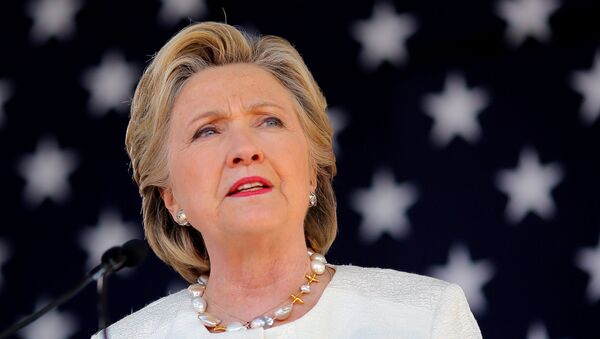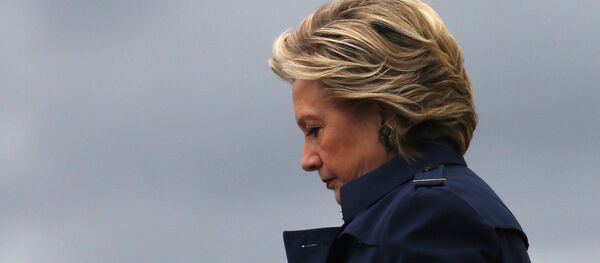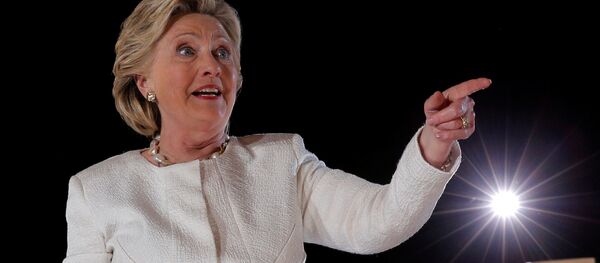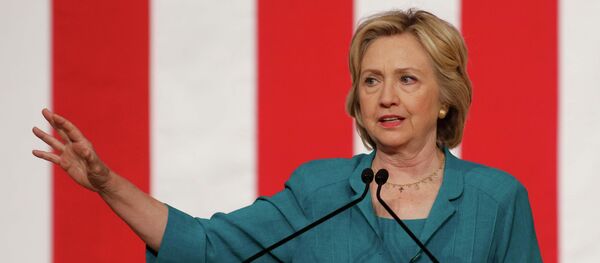The email disclosure, which is the 28th batch released so far, has bumped up to 45,526 the number of messages it has published since October 8. It comes hours after the US State Department's release of 1,240 additional pages related to Clinton's correspondence.
Despite being labeled a "Huma Abedin special," the release covers a wide range of issues, from how to answer reporters' questions on Clinton's email scandal and soften the candidate's reputation with the media, to concerns about a potential Democratic ticket challenge from Vice President Joe Biden and strategizing against rival Bernie Sanders.
"There is nothing wrong with anyone having personal email addresses or her emailing someone's private account or vice versa… We're allowed to have personal lives.
"It was her practice, as well as ours, to conduct work on the.gov system. In those cases we didn't, which could have been for any reason, including State.gov being down. In those cases the onus is on us to make sure that anything that should have ended up in the right place did."
The campaign's concern with press relations is revealed in a chain from March 2015:
"I had an idea along the same lines," Clinton's director of communications, Jennifer Palmieri, wrote, "Which was for John to invite the ten to fifteen reporters who will cover HRC everyday to his house for an off the record dinner with all of us. Maybe do the week of March 23.
"We would be clear that this was a social, get to know you session, and not to expect any briefing on the campaign. But we could use that setting to make clear that we are the group leading the campaign, not others."
Top adviser Huma Abedin asked Podesta in May 2015, "Can we survive not answering questions from press at message events. Her dinkins speech and immigration message broke through because we didn't take questions. Her community banks message got lost because she answered questions about the foundation and emails."
Podesta responded that avoiding questions would be "suicidal." Clinton's disdain for answering reporters' questions would become an infamous trademark of her general election campaign.
"I thought she did a great job of answering the questions she wanted to answer and not what exactly they asked (Iraq is good example), and kept it all in most positive territory possible," Palmieri wrote on the subject. "Given how crazed they were, she handled them well. Think it was important to do, press are now chewing over substance of her answers, which is better place to be than whining on how she hasn't talked to them."
Another email exchange features a discussion on whether to go on the offensive against both Republican White House frontrunner Donald Trump and Democratic rival Senator Bernie Sanders on gun control. In the March 2016 exchange Podesta expressed concern about potential blowback from Democratic supporters were the campaign to do so.
"Should we directly hit Sanders in this NYDN oped right now? I'm a bit skeptical," Podesta wrote, referencing a New York Daily News op-ed Clinton had written.
"My theory is that we do not want to be in a one on one with Trump — but want to hit him occasionally. In which case, we also need to be hitting Sanders occasionally so we can credibly say we are not only focused on the general [election]," replied Palmieri.
"Interestingly, I am worried about blowback from our supporters," Podesta confessed.
"We should make those calls to Obama alums," Mook wrote.
A correspondence from February 2016, immediately following the New Hampshire Democratic primary, reveals the Clinton campaign scrambled to come up with a justification for the superdelegate system in US electoral politics, which many Americans were beginning to note as unfair. Sanders won the state by a landslide, and yet because of the system, he and Clinton received an equal number of delegates from that contest going into the Democratic National Convention.





